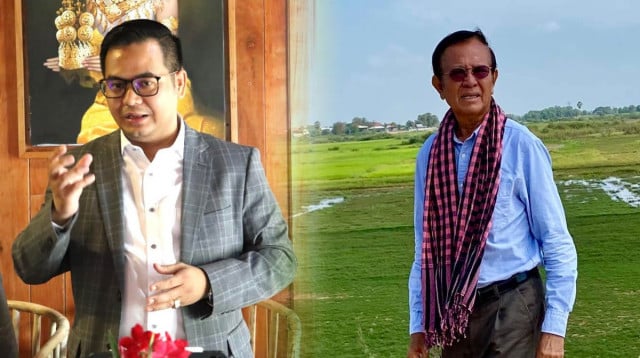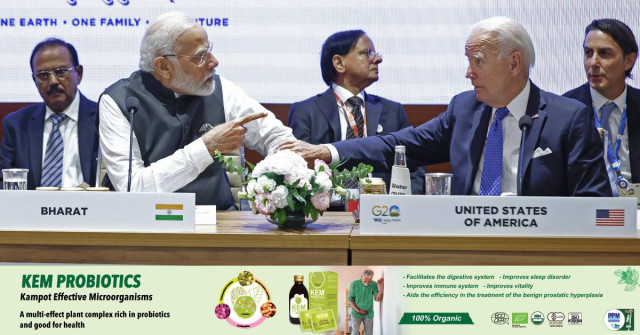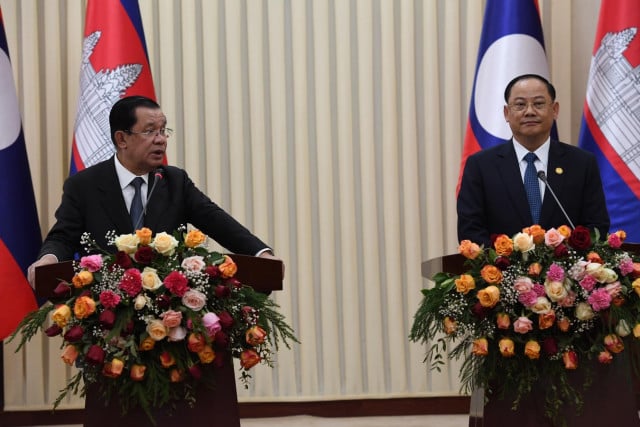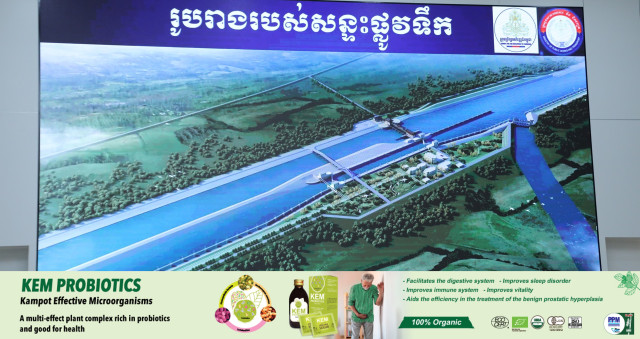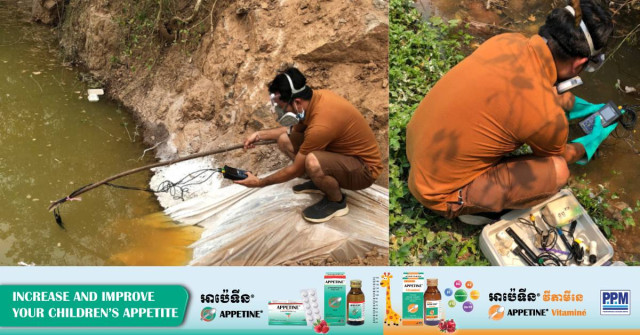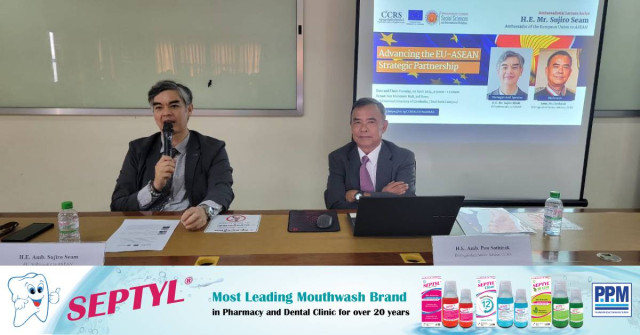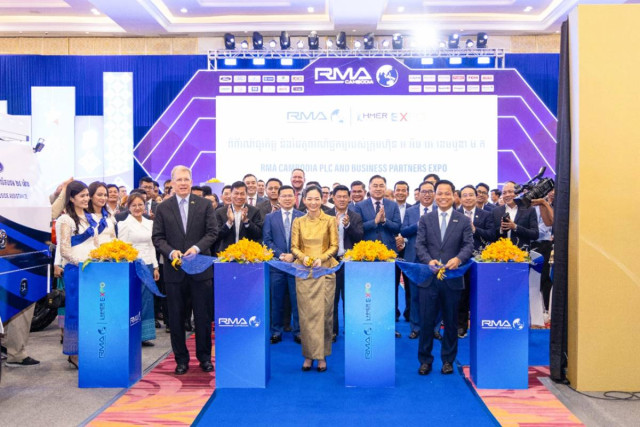Hun Sen: Government Has Right to Listen to Citizens’ Phone Calls
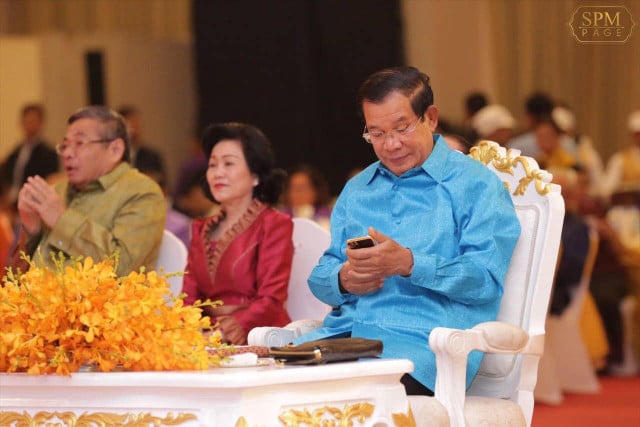
- Phoung Vantha and Gerald Flynn
- March 11, 2020 4:55 AM
Prime Minister Hun Sen has claimed the fight against terrorism is ongoing and that government agencies listening to and recording phone calls made by civilians is justified.
PHNOM PENH--Prime Minister Hun Sen said on Tuesday that his authorities still have the right to eavesdrop on the people's conversation on phone, as the prosecutor's order allowing them to do so has not yet expired.
“The prosecutor has ordered the national police to control the people's conversations following the attempted coup in November last year,” he said, in apparent reference to former opposition leader Sam Rainsy’s unsuccessful return to Cambodia in November 2019.
The government’s response to Rainsy’s unsuccessful return drew the ire of the international community as Hun Sen deployed the Cambodian Armed Forces along the Thai border and canceled the passports of 39 former opposition figures. He went on to issue arrest warrants for Cambodia National Rescue Party (CNRP) leaders to 10 Southeast Asian nations and detained more than 100 activists on a range of charges that Human Rights Watch have since deemed “bogus.”
“The fight against terrorism still continues, so the authorities still have the right to record people's conversations and eavesdrop,” Hun Sen claimed while speaking at the graduation of a Phnom Penh based private school on Tuesday.
While Hun Sen specifically referenced the attempted return of numerous CNRP leaders in November last year, which he at the time denounced as a coup, a color revolution and an attempt to overthrow the government by terrorists, Hun Sen has since declared that those suspected of spreading fake news about the coronavirus outbreak are to be considered terrorists as well.
“According to our eavesdropping, some people have been asked whether or not Phnom Penh has cases of COVID-19 and some Cambodian people responded by saying they live here and that there is no COVID-19 here, that answer is good," he added, speaking on the same day that the Ministry of Health confirmed the Kingdom’s third case of the virus.
Hun Sen went on to claim that other countries also listen into his conversations, suggesting that the practice of listening to citizens’ private conversations is both normal and acceptable.
“Other countries listen to our talk every day too, even when I’m in Phnom Penh and you think that other countries don't listen?” he said.
The police have arrested a man after a court heard he had posted images and a video clip about the COVID-19 outbreak on Facebook. Authorities denounced the man’s social media posts as “fake news.”
Municipal Police Chief Sar Thet said on Tuesday that 35-year-old Koy Sam Ath was due to appear in court on March 10 where he faces charges of incitement.
Speaking with Thmey Thmey Chun Vat, spokesperson for the Ministry of Posts and Telecommunications denied that the ministry has the power to listen to citizens’ phone calls, claiming that they only monitor online activity.
“We don’t have such powers, we cannot record the conversations of citizens – that would be the national police and they would have to cooperate with us, but at present we don’t engage in this activity, only online activities,” claimed Vat.
Spokesperson for the National Police Chhay Kim Khoeun said that he is law enforcement and as such executes the orders given to him by the state prosecutors.
“You should ask the prosecutors or the courts whether the orders they give me are right or wrong, I just do what they say – if they allow me to track phone calls, I do. If they said, those actions go against human rights, or the law, then I will stop. I'm a law enforcement officer,” he said.
He declined to give more details on the process of investigations that rely on listening in to citizen’s phone calls, again deferring to the morality of the investigator and investigative techniques employed.
Cellcard is one of Cambodia’s largest telecommunications companies and part of the so-called “Big Three” that also includes Smart Axiata and Metfone. Between them, these three telecoms providers are thought to control over 90 percent of the market in a country of nearly 16 million people.
When reached for comment, chief executive officer of Cellcard, Ian Watson, strenuously denied that the government could record citizens’ phone calls.
“The calls are encrypted and so recording the calls is not possible,” he said, adding that Cellcard do cooperate with police as part of criminal investigations only.
Watson declined to comment on what kind of data Cellcard shares with the police in the case of cooperative investigations, how often it happens or whether Cellcard has ever refused to hand over customer information to the police.
Article 5 of Cambodia’s Criminal Procedure Code states that “Judicial police officers shall have no authority to allow the listening to or record any telephone conversations. Judicial police officers shall have no authority to allow the interception or record any correspondences by telecommunications, such as facsimiles or internet messages.”
However Article 172 addresses the issue of listening to citizens’ telephone calls, which it states can be authorized by a judge. This is limited by the judge’s indication of the “type of communication that are authorized to be monitored and the duration of the mission.”
At the 4th Government-CSO Partnership Forum on Feb. 3, 2020, more than 500 civil society organizations (CSOs) signed a request to the Cambodian government to amend three laws relating to the judicial process and the independence of those with the power to authorize wiretapping and phone call interception.
Executive director of Cooperation Committee for Cambodia, Soeurng Saroeun was quoted at the forum as saying “Judges and prosecutors in Cambodia are allowed to participate in politics and can join any political party they wish. Restrictions on these freedoms would guarantee their neutrality.”






